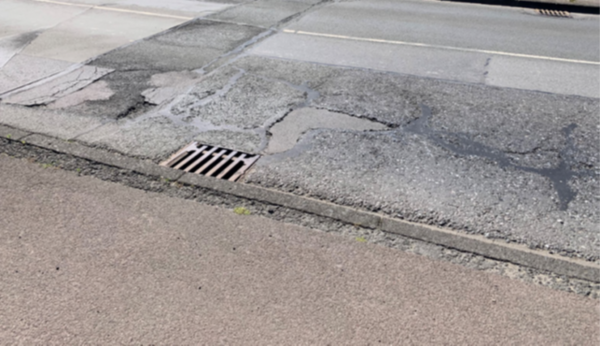RekoTi
RekoTi - Creation of a resource plan for municipal civil engineering
Resource-efficient circular economy - construction and mineral material cycles (ReMin)
Civil engineering has great economic significance and considerable resource relevance. The RekoTi project is developing management strategies to help the public sector close mineral material cycles and increase resource efficiency.
The project is being funded as part of the "Resource-efficient circular economy - construction and mineral material cycles (ReMin)" funding measure. "ReMin" is part of the BMBF research concept "Resource-efficient circular economy" and is aimed at resource-efficient construction and the expanded use of mineral secondary raw materials from construction waste, slag, ash and mining residues.
Resource relevance of civil engineering
The construction sector is very important in terms of the efficient and economical use of resources. In Germany alone, around 550 million tons of natural minerals are extracted every year and used to produce new building materials. Around half of this is used to maintain and build new infrastructure. 32 billion euros of the construction industry's 86 billion euros turnover comes from civil engineering. At the same time, this sector produces around 146 million tons of predominantly mineral waste per year (36 percent of the total amount of waste in Germany). Although around 90 percent of the waste is recycled, this mostly involves measures in road construction and landscaping or use in landfills or mining as backfill material. In order to meet the high resource requirements of the construction sector in the long term, measures to increase resource efficiency, for example by recycling materials, are therefore necessary.
Opportunities for local authorities to exert influence
In contrast to building construction, the public sector is the key player in civil engineering at various levels (planning, construction, operation, maintenance and financing). Local authorities are responsible for 75 percent of the road and path network and large parts of the wastewater network. In many municipalities, expenditure on the renovation and maintenance of roads, sewers and bridges dominates the financial budget (e.g. 40 percent in the city of Münster). The investment backlog for municipal road and transport infrastructure has risen to around 31 billion euros in recent years and accounts for around a quarter of the total municipal investment backlog. Municipalities are therefore highly motivated and have good control options for increasing resource efficiency in civil engineering.

Resource plan for municipal civil engineering
The aim of the project is to increase resource efficiency in municipal civil engineering using a resource plan. This contains innovative management strategies for creating durable structures, closing material cycles and optimizing the maintenance of roads, sewers and bridges. To this end, existing data and methods such as asset management approaches are incorporated and expanded to include sustainability aspects, for example. The information required for this is linked in a comprehensive digital model, which forms the basis for the resource plan for municipal civil engineering.
Practice-oriented project management
In the project, the resource plan is being developed in close cooperation between research (Münster University of Applied Sciences, Karlsruhe University of Applied Sciences, Ruhr University Bochum), municipal administration (City of Münster) and construction companies (Hermann Dallmann Straßen- und Tiefbau, Thomas & Bökamp Ingenieurgesellschaft mbH). The exploitation of the project results is carried out by the City of Münster with implementation in internal administrative processes and application in working practice, by the participating companies in the context of executive and advisory activities, by the participating universities in the context of their ongoing transfer tasks, project development for other companies, engineering training and new research projects. The consortium advocates an open-source policy for the results of publicly funded projects so that other local authorities and companies can also use the corresponding approaches.

Funding measure
Resource-efficient circular economy - construction and mineral material cycles (ReMin)
Project title
RekoTi - Resource plan for municipal civil engineering RekoTi
Duration
01.02.2021-31.01.2024
Funding reference
033R264
Funding volume of the consortium
1,263,842 euros
Contact
Prof. Dr.-Ing. Sabine Flamme
Münster University of Applied Sciences | IWARU Institute for Infrastructure, Water, Resources and Environment
Corrensstraße 25 | 48149 Münster
Phone: 0251 83-65253 | Email: flamme@fh-muenster.de
Project participants
City of Münster, Office for Mobility and Civil Engineering; Karlsruhe University of Applied Sciences, Institute for Transport and Infrastructure; Ruhr University Bochum, Chair of Computer Science in Civil Engineering; Hermann Dallmann Straßen- und Tiefbau GmbH & Co. KG; Thomas & Bökamp Ingenieurgesellschaft mbH
Internet
rekoti.de
Data sheet
Download data sheet